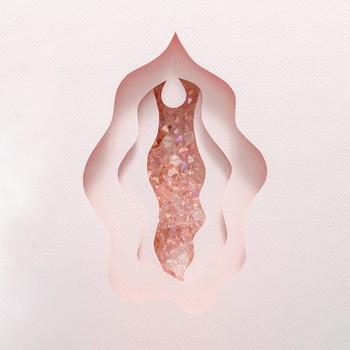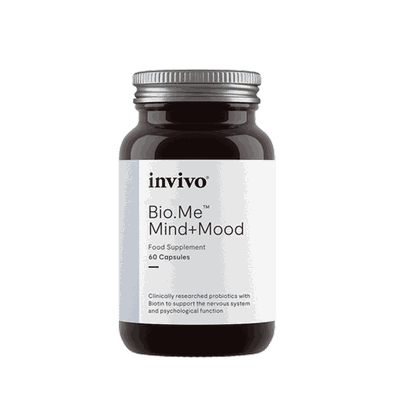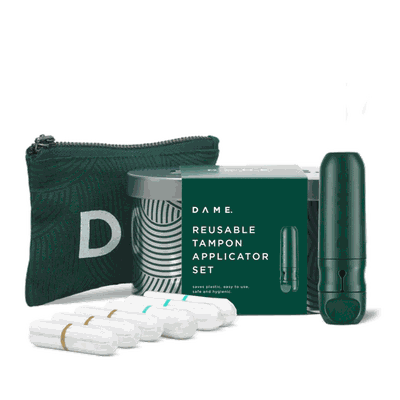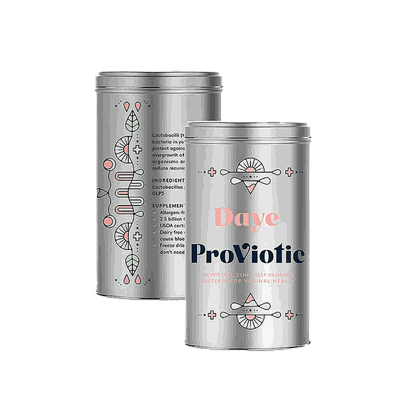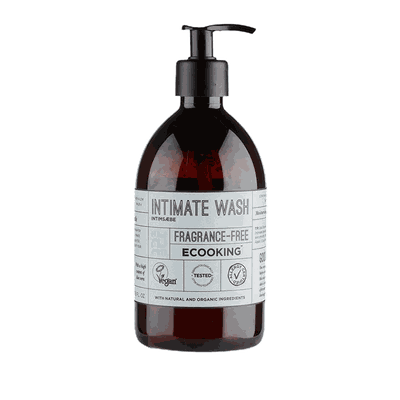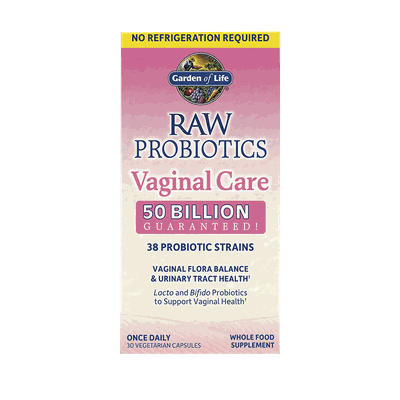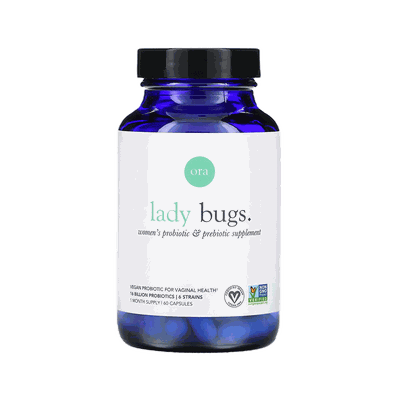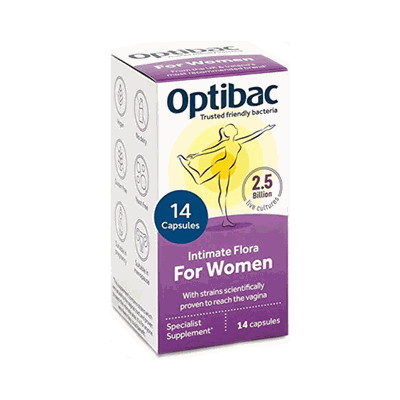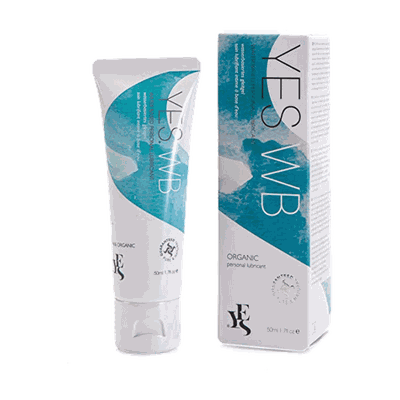How Healthy Is Your Vagina?
What exactly is the vaginal microbiome?
Most of us know about the gut microbiome and its importance in our overall health, but less is known about the vaginal microbiome. As Alison Hall, nutritional therapist, tells SL, the explosion of research into the vaginal microbiome is one of the most exciting developments for female health in recent years. “Our vagina plays host to millions of bacteria. It’s a dynamic environment and is fluctuating all the time due to our hormones – menstruation, sex and the menopause all affect our microbiome. Like our gut microbiome, certain bacteria are beneficial, and others less so. The beneficial bacteria keep our reproductive tract slightly acidic and have antimicrobial properties to protect us from conditions like bacterial vaginosis (BV), thrush, UTIs and even the risk of contracting sexually transmitted diseases.”
If you have an imbalance in your gut, is this reflected in your vaginal microbiome?
Every microbiome site in the human body, whether it’s the oral, gut, vagina or urinary microbiome (yes, there are bacteria in your mouth and urinary tract, too) is interconnected, says Emily Blake, nutritional therapist at Invivo. “In the last few years, studies have proven there is a gut-vagina axis, which speaks to the interconnectedness of the gut and vaginal microbiome and how microbes in the gut can translocate to the vagina.” Unlike the gut microbiome, which harbours lots of different types of bacteria that have different functions, the vaginal microbiome is dominated by one type of bacteria called lactobacillus. “If you keep the lactobacilli in your gut healthy, this will ensure there is a good reservoir of them for your vagina,” says Emily.
What lifestyle habits throw the vaginal microbiome out of balance?
Period Hygiene: “When using tampons, choose organic cotton and change them every two to four hours, including after every bowel movement to reduce the risk of contamination. Similarly, always wipe from front to back.” – Alison
Underwear Choices: “If you’re prone to BV and UTIs, now’s the time to overhaul your lingerie drawer. Avoid thongs to limit the migration of bacteria from the anus to the vagina. Similarly, synthetic fabrics like lycra and nylon can cause irritation and infection. Opt for breathable cotton where possible.” – Alison
Sex: “If you do suffer with recurrent infections, be aware that sex can alter the pH of the vaginal environment, so if you are not trying to conceive, a barrier method (like a condom) may help to keep symptoms at bay.” – Alison
Over-Cleaning: “Your vagina self-cleans and so an onslaught of harsh soaps and fragrances can make the vaginal environment more alkaline and inhibit the growth of those all-important beneficial bacteria, allowing more harmful organisms to take over. Similarly, lubricants and spermicides can also upset that delicate balance – swap to brands like Yes and Hanx.” – Alison
Menopause: “Our vaginal pH sits between 3.8 and 4.5 in healthy women in their reproductive years, but increases slightly during menopause. This is because oestrogen plays a role in the composition of the vaginal microbiome – oestrogen deposits glycogen in the vagina, which acts as food for lactobacilli. Lactobacilli produce lactic acid, which keeps the vagina acidic. When oestrogen levels fall during the menopause, this affects the vaginal microbiome.” – Natasha Evans, nutritionist
Antibiotics: “While antibiotics are helpful when it comes to getting rid of problematic bacteria, they can also wipe out beneficial bacteria, and contribute to vaginal dysbiosis.” – Natasha
Hair Removal: “We weren’t born with pubic hair for nothing. It’s believed one of pubic hair’s key roles is to keep pathogens out and protect against infections.” – Natasha
Smoking: “We all know smoking isn’t great for health generally, but it’s terrible for the vaginal microbiome. Nicotine levels have even been found in vaginal and cervical secretions.” – Alison
Unhealthy Lifestyles: “It’s important to remember the vagina is an integrated part of the body and how your health in general may be impacting that of the vagina. For example, blood sugar dysregulation and low immunity can increase your risk of thrush, while chronic stress can increase the risk of bacterial vaginosis.” – Emily
What are the signs your microbiome is out of balance?
The most common vaginal issues are yeast infections, BV and recurrent thrush, but if you have PCOS, studies also suggest your microbiome may be imbalanced. “There are some obvious signs you need to show your vaginal microbiome some TLC,” Alison continues. “If you suffer with regular urine infections, thrush or symptoms associated with BV – namely vaginal irritation, discharge, itching, redness, soreness and vaginal odour – there may be an imbalance at play. Infertility, miscarriage, ectopic pregnancy and preterm birth are also associated with disruptions in the microbiome, so if you have suffered the trauma of loss, it’s worth getting your microbiome tested,” she says. Natasha adds that there’s a close link between gut and vaginal health and PCOS. “Studies have shown a significant difference between the vaginal microbiome in healthy women and women with PCOS. One reason for this link is the role the gut plays in modulating oestrogen, which in turn shapes the composition of the vaginal microbiome,” Natasha says.
So, what role does the microbiome play in fertility and pregnancy?
The vaginal microbiome is becoming increasingly well-recognised for its importance in both falling and staying pregnant, and for the long-term health of the offspring, says Emily. “Tommy’s – the UK’s largest charity that carries out research into the causes of miscarriage, stillbirth and premature birth – recently published a landmark study which found a significant association between a low level of lactobacillus in the vagina and an increased risk of miscarriage.” The issue is so important for Alison that it’s the first thing she tests with her fertility clients. “Vaginal infections may account for 15% of early miscarriages and 66% of later miscarriages. Pathogenic bacteria can raise inflammation and may impact the acidity of the vaginal tract, making it a less hospitable environment for sperm, contributing to implantation failure,” Alison tells us. “The issue is so prevalent and there’s also a large proportion of women who have no symptoms and yet their microbiome is still out of balance.”
How can you get tested?
Thanks to increasing awareness of the vaginal microbiome’s importance, testing is becoming easier to get hold of. Natasha recommends Daye’s at-home kit. “You collect the sample using a specifically designed tampon – it’s super easy and collects a much better sample than a fiddly swab. Invivo also offers great microbiome tests, but you’ll need to order these through a healthcare practitioner,” she tells us. And when it comes to the results, Alison says it’s not just the presence of infectious bacteria but also the absence of the more beneficial bacteria that you’re looking for.
So, what are some good daily habits to adopt to keep your bacteria in balance?
Build Up Your Bacteria: “To build up levels of lactobacilli, focus on prebiotics from foods like onions, garlic, artichoke, cooked and cooled potatoes, wholegrains, pulses and berries, as well as fermented foods like live yoghurt, kombucha, miso, tempeh, kimchi and kefir. Also consider taking a probiotic supplement that contains specific lactobacilli strains.” – Emily
Clean Up Your Habits: “Sterilise sex toys or moon cups, avoid over-washing the vagina, explore chemical-free sanitary products, stop smoking and avoid use of thongs and underwear made from synthetic fabrics. Encourage your partner to get screened for STIs.” – Emily
Support Your Natural Hormones: “Increase your daily intake of soy, legumes, beans, pulses and flaxseeds as well as cruciferous vegetables (broccoli, cauliflower and cavolo nero) to support oestrogen detoxification.” – Emily
Balance Blood Sugar: “Changes in blood glucose can cause vaginal microbiome imbalances. Reduce your intake of refined carbs, learn how to deal with stress and do regular exercise.” – Emily
Nourish Your Nervous System: “Focus on stress management and sleep quality with the help of deep breathing, meditation, exercise and getting outside into daylight and nature. Watch your caffeine intake and embrace nutrients like magnesium, ashwagandha and lemon balm.” – Emily
For more information visit NENutrition.co.uk, AlisonHallNutrition.co.uk & InvivoHealthcare.com
SHOP THE EDIT NOW
DISCLAIMER: Features published by SheerLuxe are not intended to treat, diagnose, cure or prevent any disease. Always seek the advice of your GP or another qualified healthcare provider for any questions you have regarding a medical condition, and before undertaking any diet, exercise or other health-related programme.
DISCLAIMER: We endeavour to always credit the correct original source of every image we use. If you think a credit may be incorrect, please contact us at info@sheerluxe.com.
